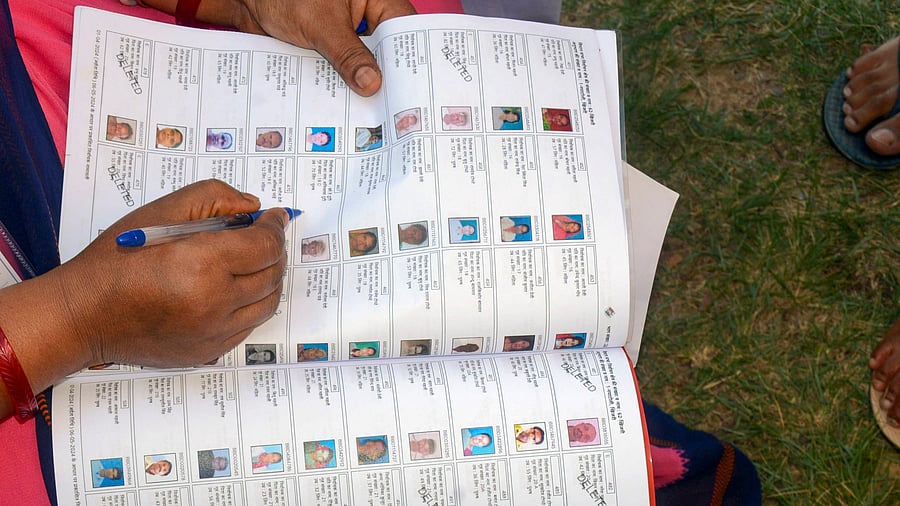
A polling official searches for the name of a voter in the voters list at a polling booth. Representative image.
Credit: PTI Photo
New Delhi: Noting that a large number of urban local bodies in the country delays in urban local government (ULG) elections, a latest study report said that State Election Commissions (SECs) operate under “institutional constraints” and that a majority lack the authority to conduct ward delimitation and reservation.
The report prepared by non-profit Janaagraha said that the SECs face significant institutional constraints, with only 8 out of 34 SECs empowered with both ward delimitation and reservation powers and 2 with powers over delimitation only, while 24 SECs have no powers over these critical electoral processes.
The SECs are responsible for conducting elections to local governments—panchayats and municipalities.
The report quoting the performance audit reports by the Comptroller and Auditor General of India, said that there was rampant delay in elections to Urban Local Governments (ULGs) across the country. 61% of ULGs across 17 states experienced election delays, said the report.
“Elections once in five years before expiry of the term of the outgoing elected body is well established for ULGs just like in the case of Lok Sabha and Vidhan Sabha. The 74th Constitution Amendment Act and Supreme Court judgements are unequivocal in this. Yet State Governments are delaying elections to hundreds of ULGs with impunity, with delays sometimes stretching for months and years on end. This status quo needs to stop,” Srikanth Viswanathan, CEO, Janaagraha said.
The research indicates that the absence of defined timelines for electoral processes leads to unscheduled amendments to election rules, altering of ULG boundaries, announcement of delimitations, and amending reservations by state governments. These create electoral uncertainty in cities, the report said.
"There is no substitute to independent, empowered and resourceful local self-government if we aspire to become a developed country by 2047,” said Alok Kumar, former State Election Commissioner, Assam and former Chairman, Standing Committee, All India Forum ofState Election Commissioners.
The study report recommended constitutional amendments to define the frequency for delimitation and reservation and to empower the SECs with these powers.
"Legislative safeguards preventing state governments from changing election rules or ULG boundaries within six months of council expiry, model laws to provide robust and time-bound electoral processes for local government elections, including ensuring administrative and financial independence of SECs
and mandating transparency measures like submission of annual reports by SECs to Governors, making election related data available in an accessible format on SEC websites, etc,” are some of the suggestion made by the report.
